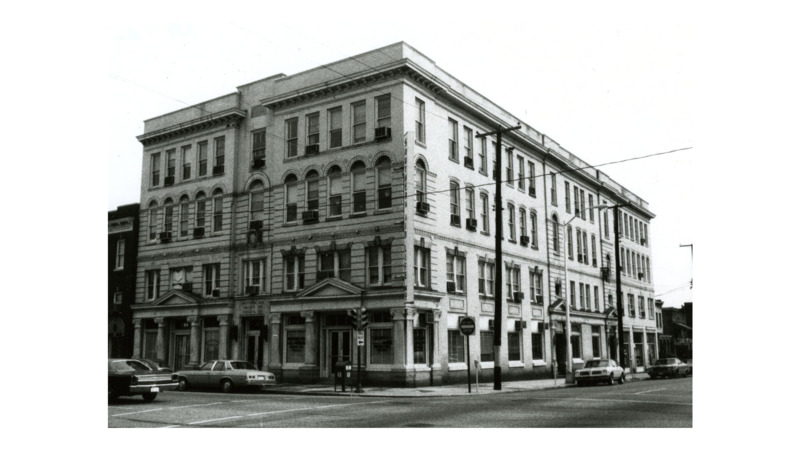Jackson Ward - Richmond, VA
Item
Title
Jackson Ward - Richmond, VA
Description
Richmond at the turn of the 20th century had one of the nation’s most thriving Black business communities. The hub of this activity was Jackson Ward with its fraternal organizations, banks, insurance companies, and other institutions, all founded and run by Black Americans. The neighborhood developed before the Civil War and originally was populated primarily by citizens of German and Jewish descent but with a sizable free Black American population. After the war, Jackson Ward gradually became predominantly Black. Some scholars attribute this to white political forces only allowing blacks to live in a single voting district to dilute their political power.
Urban renewal projects in the 1950s devastated Jackson Ward. City and state officials designed the Richmond-Petersburg Turnpike (now part of I-95) to pass through Jackson Ward, bisecting the neighborhood and destroying historic structures. Later, desegregation and white flight saw blacks moving out of Jackson Ward. As buildings began to deteriorate, the area was further targeted for new development such as federal housing projects, and the City Coliseum that opened in 1970.
Urban renewal projects in the 1950s devastated Jackson Ward. City and state officials designed the Richmond-Petersburg Turnpike (now part of I-95) to pass through Jackson Ward, bisecting the neighborhood and destroying historic structures. Later, desegregation and white flight saw blacks moving out of Jackson Ward. As buildings began to deteriorate, the area was further targeted for new development such as federal housing projects, and the City Coliseum that opened in 1970.


